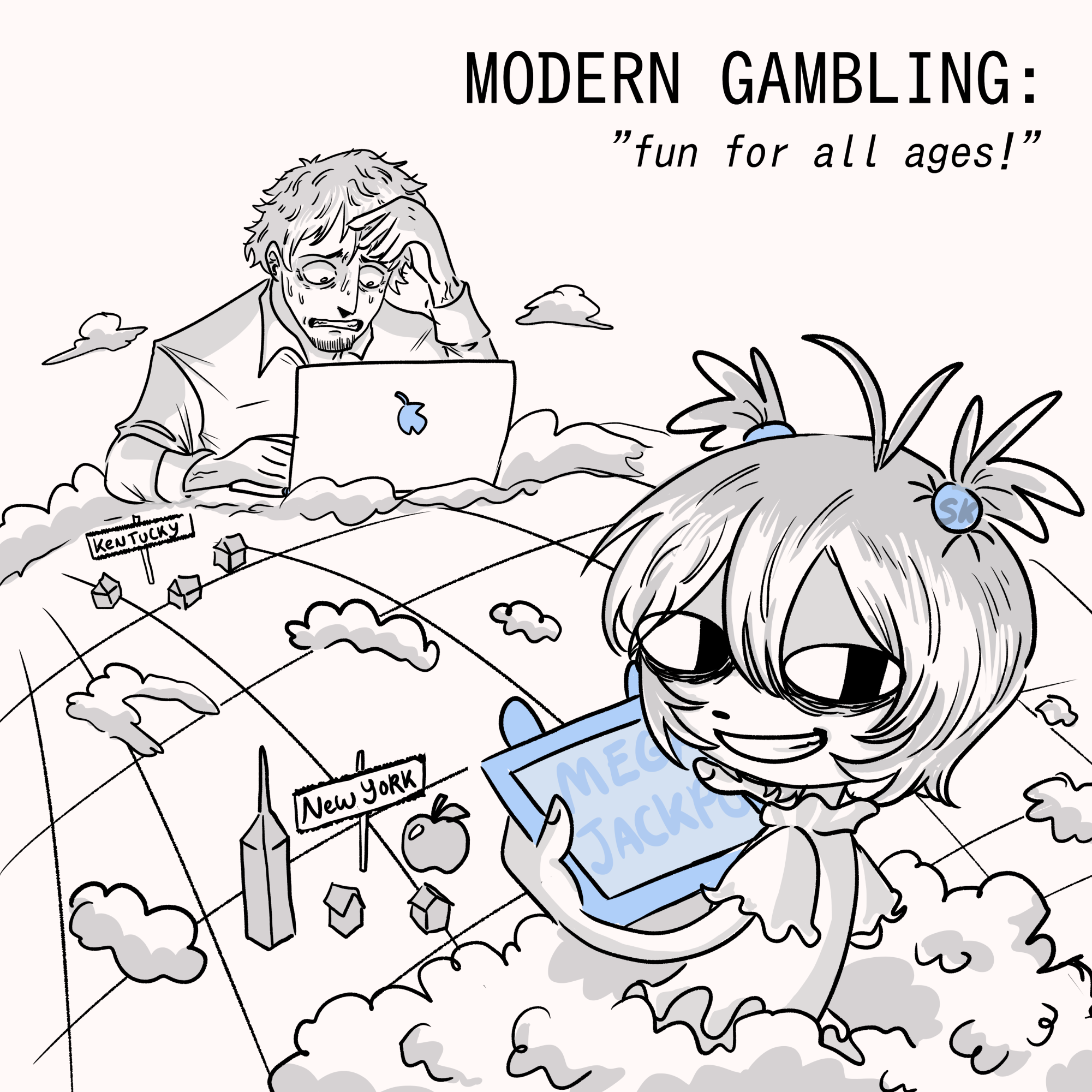
With the beginning of March Madness and rising popularity of online sports gambling, this year’s question of the outcome isn’t which basketball team will win, but who will fall victim to the gateway drug that is competitive sports brackets. Historically, March Madness has been harmless– something printed out, filled in with leisure, and left on the kitchen table between scribbles of updates. The accessibility online gambling provides has developed a once playful activity into something more serious now that sports fans can take their bets further, and with more ease than ever before.
This week, The North Wind Editorial Board sat down to discuss their concerns about this phenomenon. For some of us, it’s our first year filling out a bracket– and it’s more addictive than we previously assumed. Others of us have participated in March Madness since we were kids and associate it with fond memories. With the casual March Madness we grew up with, there’s winning but there’s no losing. Its innocence is now being lost by gambling apps weaponizing it for profit, all in between ads encouraging users to bet on other games.
Outside of the game, the betting culture encourages an additional level of audience engagement that incentivizes fans to become financially aggressive about their predictions. The advertisements for sports betting are curated for young men by using masculine language and marketing; the advertisements display gambling as something cool and feature an instance of social gratification between men when someone wins.
We believe this to be harmful, because all it takes is for someone to begin, and once they receive that first gratification, it becomes easier and easier to go too far. An innocent introduction to sports gambling through someone’s yearly tradition of participating in March Madness can lead them down a path they otherwise wouldn’t have gone down. Then, when someone loses hundreds of dollars on a sports bet, the culture surrounding it reinforces that it’s just something fun to do rather than instilling panic for realizing they just lost a lot of money over nothing.
Story continues below advertisement
With the introduction of apps like DoorDash, fast food consumption skyrocketed. Similarly, with the new accessibility of gambling through apps as opposed to the previous thirty-minute drive to the casino, it’s easier than ever to throw in some money any day of the week– before work, on your lunch break, or at the kitchen table where your prehistoric, printed bracket flutters to the floor. Some editorial board members have accounts of their younger siblings stumbling onto gambling apps found on social media without even realizing what they were doing. The more money these companies have to cycle the money through, the more power they’ll have to perpetuate more ads, and more extremes.
March Madness doesn’t have to be a gateway, but when someone is already participating in something with chance, the culture perpetuates that. Gambling statistics are available online, and the numbers are staggering. Online sports betting revenue from major companies like DraftKings has exponentially increased from 2018-2022. The money they “give back” in winnings are a mere fraction of their profit. How are they gaining so much, so fast? The answer is in parlay bets. While some don’t see the harm in practices like March Madness because they believe it’s a 50/50 wager, the introduction of more complicated practices like parlaying opens a plethora of opportunities to suck participants dry of every last penny whilst convincing them they have greater odds.
Parlaying allows betters to wager on multiple aspects of a game. It isn’t about who wins or loses anymore; instead, people can bet on, for example, how many three pointers are shot by a specific player. Parlays allow gambling apps and websites to make much more per bet because they’re often advertised as bundles, creating an illusion that a gambler has higher odds because there are more possibilities but in reality, are lower odds because of all of the specifications. March Madness is specifically vulnerable to this concept because there are so many potential varying outcomes relying on each other to create each game moving through the season.
Humanity has always been drawn to taking risks for the potential of prosperous outcomes– but now as the smoky, backwater daycares for the elderly dry up with the development of new age technology, the dangers of gambling spread further than just the casino’s clutches on old people in rural areas. If you’re an avid sports fan unsure if you want to participate in all of March’s commotion, it’s best to just print it out the old-fashioned way.